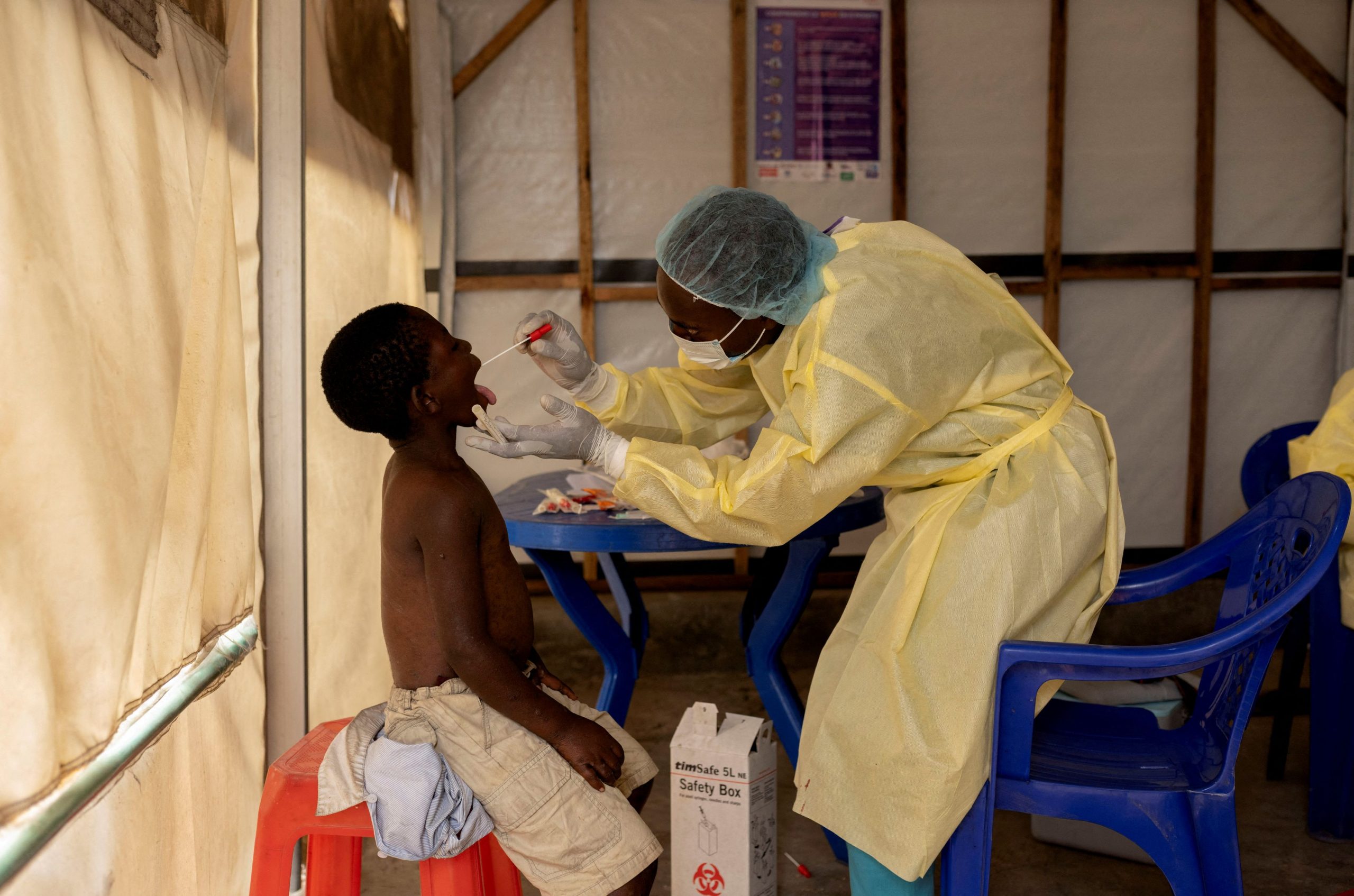KAMPALA, Uganda—The rapid spread of Mpox in Africa constitutes an international health emergency, the World Health Organization said Wednesday, marking the second time in two years that the virus has triggered such a declaration by the United Nations agency.
Cases of Mpox, which is transmitted through close physical contact, including sexual intercourse, have been surging in the Democratic Republic of Congo , where the virus is now circulating in several camps for displaced people in the country’s troubled east. From eastern Congo, Mpox appears to have spread to the neighboring Central African Republic, Burundi, Uganda and Rwanda, as well as to some African countries farther afield.
Health officials have also detected what appear to be separate outbreaks of Mpox in other parts of Congo, as well as in Cameroon, Ghana, Ivory Coast and Nigeria.
Taken together, there have been more than 17,000 suspected Mpox infections across 13 African countries—up from 14,957 infections in 2023 and 7,146 in 2022—and at least 517 confirmed deaths, according to the Africa Centres for Disease Control and Prevention. Most of infections and deaths, about 95%, have been recorded in Congo.
“The potential for further spread in Africa and beyond is very worrying,” said Dr. Tedros Adhanom Ghebreyesus , the WHO’s director-general. “It’s clear that a coordinated response is essential to save lives.”
Mpox, which is endemic to parts of Africa, causes flulike symptoms , usually followed by a skin rash, and most patients recover with supportive care, such as painkillers and fluids. But the virus can be deadly for people whose immune system is already weakened by malnutrition or other underlying health issues.
In addition to the unprecedented number of cases, health experts say that they are especially worried about the current outbreaks for several reasons.
The Congolese cases are caused by a version of the virus known as Clade I, which is considered deadlier than the Clade II Mpox that was behind the global outbreak in 2022. Health officials say they have also detected a new variant of the virus, known as Clade Ib, in Congo that might be more transmissible than other variants.
“We have seen that Clade Ib spreads faster, but we do not know if this is because of something to do with the virus itself,” said Dr. Samuel Boland , a public-health expert with WHO’s Africa office.
All the affected countries have underfunded health systems and eastern Congo is already experiencing one of the world’s worst humanitarian crises , with millions of people displaced from their homes and high rates of malnutrition.
Hospitals in the hardest-hit places in Congo have been unable to isolate Mpox patients—putting other patients at risk—and often lack basic supplies such as gloves, aid workers say. At a hospital in South Kivu province in eastern Congo, a 2-week-old baby contracted Mpox this month after sharing a room with an adult who was infected with the virus, aid group Save the Children said.
Health officials have also been concerned by the unusually large number of children who have been infected and fallen seriously ill in the Congo outbreak. Mpox has killed at least 321 children under 15 in Congo this year, accounting for more than 60% of total confirmed deaths, according to WHO data. The case fatality ratio among children under the age of 1 year is 8.6%, compared with 2.4% in people ages 15 and over, the WHO said.
In the 2022 global Mpox epidemic, the virus affected mostly adults who contracted the virus during sexual intercourse. Between 2022 and May 2023, Mpox caused some 87,000 confirmed infections and 140 deaths across 111 countries. The epidemic was eventually contained through vaccinations and behavioral changes in heavily affected communities, such as men who have sex with men.
Aid workers and public-health experts said it was unclear whether there was anything about the new Mpox strain that made children more vulnerable or whether the higher number of infections among children is caused by the difficult living conditions in Congo.
“Children have more physical contact interactions through play, at school and as they are not able to recognize the early signs and symptoms and their significance,” said a spokeswoman for Save the Children, which runs health programs in several displacement camps in eastern Congo.
Officials hope that the WHO’s declaration of a “public-health emergency of international concern” will trigger a faster mobilization of resources, including the deployment of vaccines, to contain the spread of Mpox. The U.S. State Department says it has already spent some $17 million this year to fund response efforts in East and Central Africa. Washington is donating some 50,000 Mpox vaccines to Congo to help fight the outbreak.
The African Union’s Centres for Disease Control and Prevention, which on Tuesday declared the Mpox outbreak a public-health emergency for the continent, said it had signed an agreement with the European Union for the provision of 215,000 doses of a shot developed by a Danish vaccine maker, Bavarian Nordic . The shot has previously been used in the U.K. and U.S.
“This is not just another challenge; it’s a crisis that demands our collective action,” Jean Kaseya , head of the Africa Centres for Disease Control and Prevention, said on Tuesday. “Families have been torn apart and the pain and suffering have touched every corner of our continent.”
Write to Nicholas Bariyo at nicholas.bariyo@wsj.com



